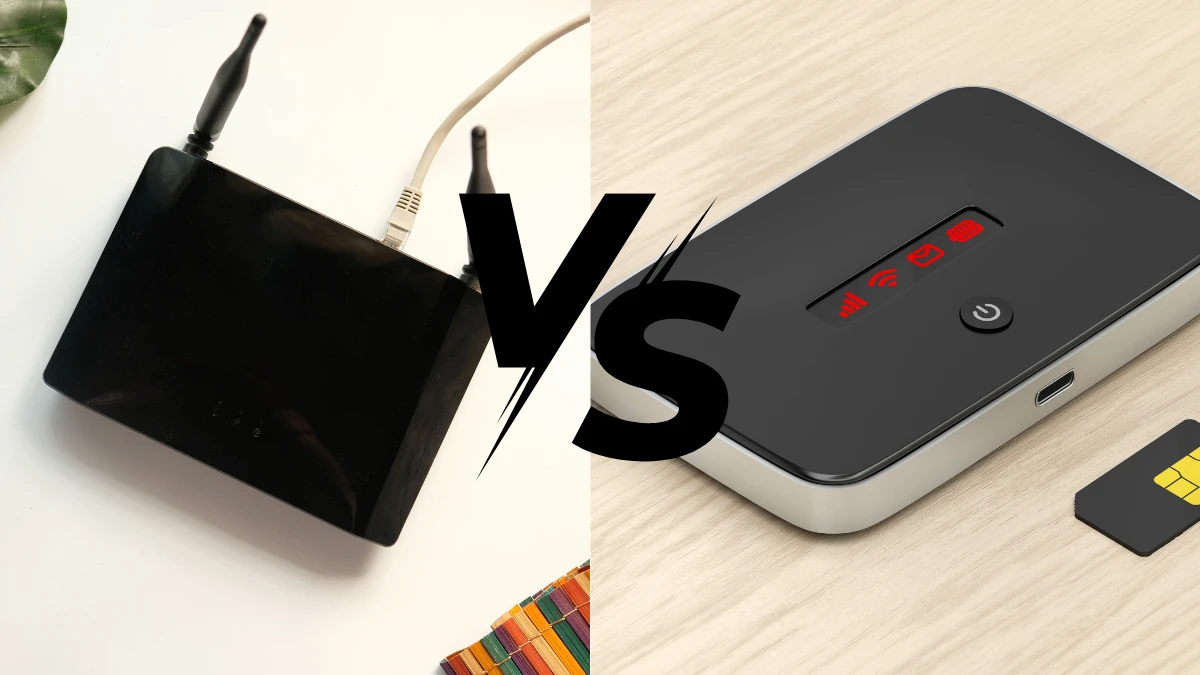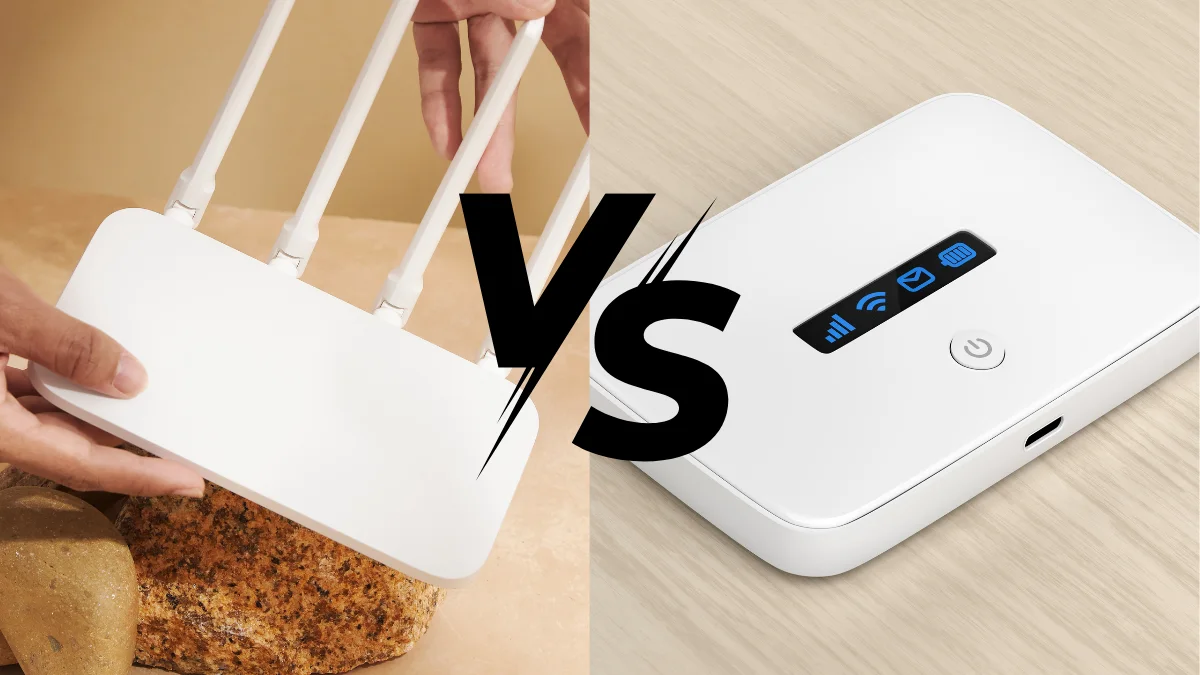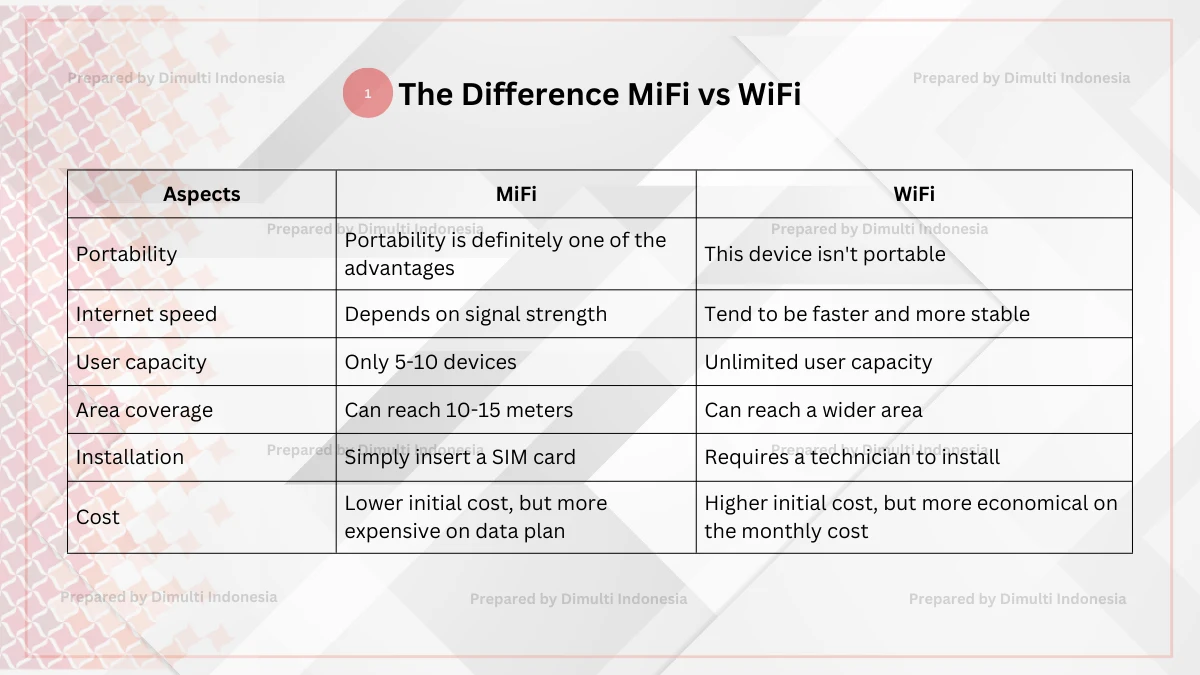MiFi and WiFi are the keys to having an internet connection. Although both are devices that provide the internet, MiFi vs WiFi have some significant differences.
The differences between MiFi vs WiFi include portability, internet speed, user capacity, area coverage, installation, and cost.
This article will explore the key differences between MiFi vs WiFi for improving your internet connection.
What is MiFi?

MiFi stands for Mobile WiFi, which is a portable device that can transmit internet signals to various devices, such as smartphones, tablets, and laptops. This device provides internet access using a cellular network. The cellular signal on the SIM card installed in the MiFi is converted into a WiFi signal.
This device is designed to be portable with a compact and lightweight design. It usually comes with a built-in battery, so you don't need to plug it in to turn it on. This device is suitable for those who like to move around and travel.
What is WiFi?

WiFi, or Wireless Fidelity, is a wireless network that allows internet access for smartphones, tablets, or laptops. This system works through a router connected to a modem that can access internet services directly from an Internet Service Provider (ISP).
This device is designed to provide a fast and stable internet connection in a fixed area without being portable. It is commonly used in homes, offices, cafes, or other public places. WiFi can connect to multiple devices and can be used for heavy activities such as online gaming, 4K streaming, or video conferencing.
The Differences between MiFi vs WiFi

MiFi vs WiFi are both key to having an internet connection. Here are six differences between MiFi vs WiFi:
1. Portability
MiFi: Portability is definitely one of the advantages of MiFi. It's designed to be small, light, and compact, making it great for traveling.
WiFi: This device isn't portable. WiFi is designed to be used in a fixed location and not for traveling.
2. Internet speed
MiFi: MiFi's internet speed depends on signal strength. When you are in a location with a good 4G or 5G cellular network, the signal speed will be adequate. However, if you are in a location with a weak signal, the connection will slow down.
WiFi: In terms of internet speed, WiFi is clearly superior. Connections via cable or fiber optics tend to be faster and more stable.
3. User capacity
MiFi: MiFi usually has a simultaneous user capacity of only 5-10 devices. If more than that number are connected, the internet speed will decrease.
WiFi: WiFi has unlimited user capacity. Many devices can connect at once without a significant decrease in speed.
4. Area coverage
MiFi: MiFi's area coverage can reach 10-15 meters. So when you move far away from the device, the connection will be lost.
WiFi: WiFi's area coverage can reach a wider area. If you want wider coverage, you can expand it with a repeater or mesh system.
5. Installation
MiFi: In terms of installation, MiFi is clearly easier. You simply insert a SIM card into the device, turn it on, and you can immediately connect to the internet.
WiFi: WiFi requires a technician to install it first; it cannot be used immediately. You need to wait for the device to be installed.
6. Cost
MiFi: In terms of cost, MiFi has a lower initial cost for the device. However, the data plan used is usually more expensive compared to WiFi.
WiFi: On the other hand, WiFi is the opposite—the initial cost for installation and the device is higher. However, the monthly cost can be more economical for long-term use.
That’s the difference between WiFi vs MiFi that you can consider when choosing according to your personal needs.
If you need a portable internet connection with fewer device connections for traveling, MiFi is a good choice. However, if you need a stable internet connection in one place for multiple device connections, you can choose WiFi. [UN]